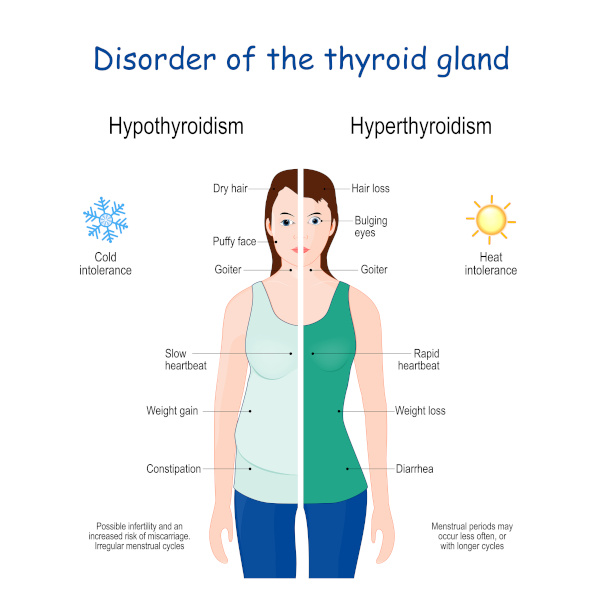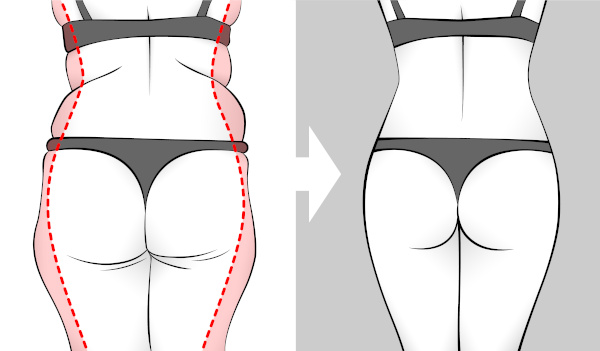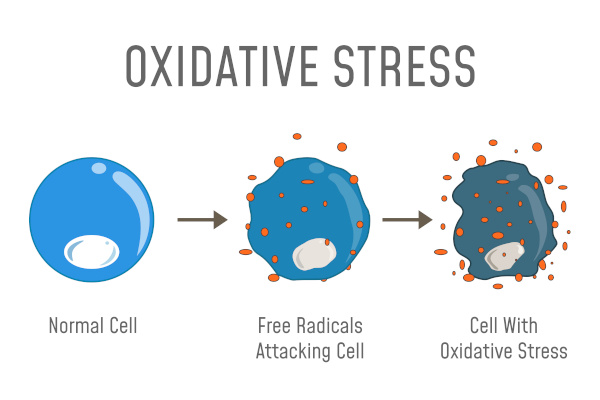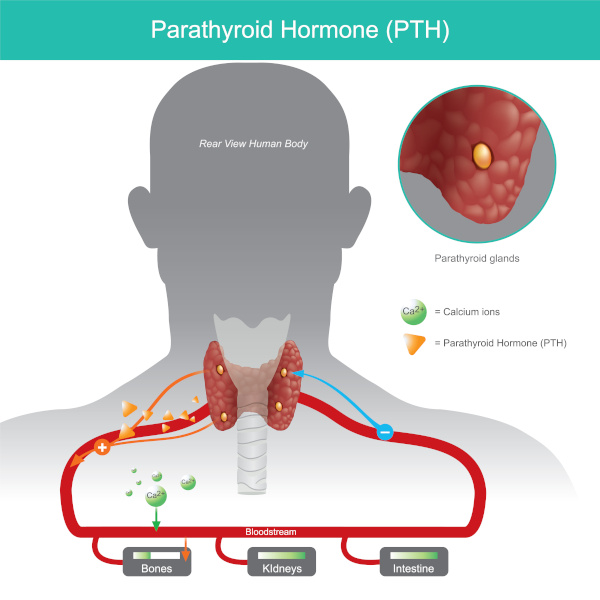Selenium Benefits for Health, Fertility and Weight loss
Selenium benefits the human body in a number of ways. Health and nutrition are intertwined with each dependant on each other for true health. Selenium is an understated factor in this complex equation of healthy eating, nutrition and the healthy lifestyle all the benefits these factors bring together. Consequently, the health benefits of selenium are an essential component of good health – in many ways. Good nutritional balance is essential for health and healthy weight loss. While many focus on the macros (fats, proteins and carbohydrates) we cannot ignore the micro-nutrients – vitamins, minerals, antioxidants and amino acids etc. Selenium is one of those micronutrients that plays numerous essential roles in weight loss and in our overall health. Here, we take a delve into the selenium benefits and explain why it (amongst the other micronutrients) is essential for our health. Firstly, we’ll take a quick overview of Selenium to introduce it’s many benefits.
What is Selenium and What Does Selenium Do for the Body?
Selenium is one of the essential trace minerals that plays numerous important roles in the body. One of the primary functions of selenium is its role as a cofactor for selenoproteins, which are enzymes that protect cells from oxidative damage. These selenoproteins help neutralize harmful free radicals, reducing the risk of chronic diseases, including cancer, cardiovascular diseases, and neurodegenerative disorders.
Selenium is also essential for proper thyroid function, as it is a key component of the enzymes involved in the synthesis and metabolism of thyroid hormones. Adequate selenium levels support a healthy metabolism and contribute to maintaining energy levels and body temperature.
Furthermore, selenium is essential for a robust immune system. It helps to enhance immune response by promoting the production of cytokines and supporting
the function of white blood cells, which are crucial in defending the body against infections and illnesses. Some of these roles played by selenium include (and not limited to) :-
- Cognitive Function.
- Supporting a Healthy Immune System
- Thyroid Hormone Metabolism
- DNA Synthesis
- Protects against Oxidative Damage and Infections
- and Fertility (in both men and women)
Now, lets take a closer look into the individual benefits selenium has for the human body…
Selenium Benefits : Thyroid Gland Health
Selenium plays an important role in the proper functioning of the Thyroid Gland. Thyroid tissue contains more Selenium than any other organ in the human body. This powerful mineral helps protect the thyroid gland from oxidative damage and plays a vital role in the production of thyroid hormone. A healthy thyroid gland is important because it regulates metabolism and also controls growth and development. Inadequate levels of selenium has been linked to thyroid conditions such as Hashimoto’s thyroiditis (a type of hypothyroidism in which the immune system attacks the thyroid gland).

“Thyroid health stands as a cornerstone of overall well-being, exerting a profound influence on numerous bodily functions. This unassuming butterfly-shaped gland, situated at the base of the neck, orchestrates a symphony of essential roles that extend far beyond its size. The thyroid gland primarily produces thyroid hormones – thyroxine (T4) and triiodothyronine (T3). These hormones act as metabolic regulators, dictating the pace at which cells convert nutrients into energy. This metabolic control impacts weight management, energy levels, and body temperature. Moreover, the thyroid plays a pivotal role in cardiovascular health, influencing heart rate and rhythm.
Beyond its immediate physiological effects, thyroid hormones also influence mental health, mood stability, and cognitive function. A harmonious thyroid function is crucial for growth and development, particularly in children and adolescents.”
Extract from Selenium Benefits for Thyroid
The thyroid gland is surprisingly important – its health even more so. Poor thyroid health can result in many physical and mental health issues. Conversely, good thyroid health can give our lives the boost it needs for socialising, physical activity, fertility, mental acuity and cognitive abilities, metabolism, weight loss, heart health and many more.
Selenium Benefits for Weight Loss
Selenium’s benefits do not stop at the thyroid gland. The thyroid gland helps to control metabolism of food into energy – energy we need to perform our daily tasks and lifestyle. Selenium also plays a role in weight management for both men and women. While not a direct weight loss solution, selenium contributes to the process through its influence on metabolism, heart health and energy levels.

Selenium benefits weight loss through its support in the creation of selenoproteins, which in turn improves the health and performance of the thyroid gland (which helps regulate metabolism through various processes) help support thyroid function. An optimal metabolic rate can enhance the body’s ability to burn calories efficiently, aiding in weight management for both men and women.
Furthermore, selenium is involved in the production of cellular energy. As a component of selenoproteins, it contributes to the efficient functioning of the mitochondria, the cellular powerhouse responsible for generating energy. An increase in energy levels can lead to better physical activity performance and motivation to engage in regular exercise, which is essential for weight loss and maintenance.
Selenium Benefits for Men
While Selenium plays a crucial role in various physiological functions within the human body, both men and women benefit from selenium. Men, in particular, can experience specific advantages related to reproductive health. Selenium is known to have a positive impact on testosterone and sperm health, making it a vital nutrient for male fertility.

Selenium Benefits for Men : Increased testosterone levels, sperm health, hair growth and DNA integrity….
One of the primary benefits of selenium for men is its ability to enhance sperm quality. Research shows that selenium is an essential component of selenoproteins. Selenoproteins act as antioxidants, protecting sperm cells from oxidative damage caused by free radicals. Oxidative stress can impair sperm DNA integrity and motility, leading to reduced fertility. Adequate selenium intake can help mitigate this damage and maintain healthy sperm function.
Additionally, selenium has been associated with improved testosterone production. Testosterone is a key male sex hormone that influences sperm production and overall reproductive health. Studies have indicated that selenium supplementation can lead to increased testosterone levels, potentially enhancing fertility in men. [1][2][3]
As part of a healthy diet, selenium can boost weight loss which also improves male (and female) reproduction.
Selenium Benefits for Women
Selenium benefits for women are equally significant as they are for men. This essential trace mineral plays a crucial role in maintaining overall health and well-being in females. From supporting the immune system to promoting reproductive health, selenium offers a myriad of advantages specific to women.
One of the key selenium benefits for women is its role as an antioxidant. Selenium works alongside other antioxidants to combat oxidative stress and reduce cellular damage caused by free radicals. This can help prevent chronic diseases such as cardiovascular issues, cancer, and neurodegenerative conditions, supporting women’s long-term health. [6]
Selenium benefits for women extend to reproductive health as well. Adequate selenium levels have been linked to improved fertility and a healthier pregnancy. Research has shown that selenium can protect against certain pregnancy complications, such as pre-eclampsia, and contribute to better birth outcomes. [6]
Moreover, selenium plays a significant role in thyroid function, which is crucial for women’s hormonal health and metabolism. It aids in the production of thyroid hormones and supports the thyroid gland’s overall functioning, ensuring proper hormonal balance. [5]
The immune system also benefits from selenium, as it assists in the production of selenoproteins that regulate immune responses and help protect against infections and diseases.
Selenium Benefits : Fertility
As mentioned previously, selenium offers numerous benefits for both men and women, particularly concerning reproductive health and fertility [4]. Its role as a potent antioxidant contributes to protecting the body’s cells from oxidative stress and damage caused by free radicals, supporting overall well-being. However, its impact on fertility is especially noteworthy.

Selenium Benefits : Fertility
Adequate selenium intake is particularly important for reproductive health as it is involved in the production of sperm and supports healthy fertility in both men [2] and women [3],[4].
Selenium can be sourced from : Pork, beef, turkey, chicken, fish, shellfish, and eggs. Certain beans and nuts, especially Brazil nuts, contain selenium.
For men, selenium benefits extend to improved sperm health. As a component of selenoproteins, selenium acts as an antioxidant that shields sperm cells from oxidative damage, ensuring better sperm quality, DNA integrity, and motility. Additionally, selenium has been associated with increased testosterone production, a hormone critical for sperm production and reproductive function. [2],[4]
Similarly, selenium benefits for women are significant, encompassing antioxidant protection, support for reproductive health, and a positive impact on the immune system and thyroid function. Adequate selenium levels have been linked to enhanced fertility and better pregnancy outcomes. Selenium’s role in thyroid function is particularly relevant, as a well-functioning thyroid gland is essential for hormonal balance and overall reproductive health in women.[
While selenium supplements are available, obtaining this essential mineral through a healthy diet is recommended. A balanced diet incorporating these selenium sources can ensure a steady intake of this essential mineral without the risk of excessive consumption, which could lead to selenium toxicity.
Research has shown that selenium intake through dietary sources is linked to better health outcomes. Studies have indicated that a diet rich in selenium can positively impact sperm health and increase fertility rates in men, as well as protect against certain pregnancy complications and promote better birth outcomes in women.
Selenium Benefits for the Heart
Selenium is an essential element for human health and has many health benefits, including protection against heart disease and other cardiovascular and
muscle disorders[10][12]. Here are some ways in which selenium benefits the heart:
- Improves heart function: Selenium has been shown to improve heart function by increasing the activity of certain enzymes and reducing inflammation[13].
- Lowers risk of heart disease: Studies have found that people with higher levels of selenium in their blood have a lower risk of heart disease[11]. This may be due to selenium’s ability to reduce inflammation and oxidative stress, as well as its role in regulating blood pressure and cholesterol levels[10].
- Prevents blood clots: Selenium may help to prevent blood clots from forming in the arteries, which can lead to heart attacks and strokes[10].
Selenium reduces oxidative stress. Selenium has antioxidant properties that help to reduce oxidative stress in the body. Oxidative stress can damage cells and contribute to the development of heart disease[13]

Protect Against Heart Disease. A high selenium diet can help you maintain heart health. Low levels of Selenium are associated with the increased risk of heart disease. In addition to this, selenium can reduce inflammation in your body – cellular inflammation is another cause of heart disease. Selenium can also increase the levels of glutathione peroxidase – a potent antioxidant. It’s important to note that while selenium can be beneficial for heart health, too much selenium can be harmful.
Selenium Benefits as an Antioxidant – The Antioxidant Properties of Selenium
In addition (and as part of the aforementioned benefits), selenium has antioxidant properties. Antioxidants are essential compounds which are found in foods. They are known for the crucial role they play in preventing cell damage which occurs as a result of free radicals and excess fat deposits causing excess growth and weakening the cell walls.
Free radicals are natural by-products of processes that occur on a daily basis in the body. Metabolism is just one example of these free radical generating processes within the body. Whilst they may have a bad reputation and need controlling, free radicals play an important role in our health. Some of the functions free radicals perform include providing some protection to the body from disease.

However, unhealthy habits we do on a daily basis such as smoking, drinking alcohol, eating charred food from a barbecue and stress can result in excess free radicals. Oxidative stress can occur as a result of this which causes damage to healthy cells in the body.
Studies have revealed a strong relationship between oxidative stress and chronic conditions such as heart disease, Alzheimers Disease, Cancer and premature aging and an increased stroke risk.
Antioxidants like selenium help reduce oxidative stress. Selenium achieves this by controlling the number of free radicals, protecting the cells from oxidative stress.
Seleniums’ Antioxidant Properties as a Guard Against Cancer
Reduce the Risk of Certain Cancers. As part of Selenium’s ability to guard against and reduce oxidative stress, Selenium has been shown to reduce the risk of certain cancers. This is attributed to the ability of Selenium to reduce DNA damage and oxidative stress, strengthen the immune system and destroy cancer cells. While there are supplements available to boost your intake of selenium, the best benefits are obtained through our natural dietary intake. We will discuss selenium rich foods an a separate post.
Selenium Benefits : Mental Health and Cognitive Function
Selenium plays an important role in many functions of the human body – including the brain. Research reveals definitive correlations between higher selenium intake and mental health.

In one study conducted on elderly Americans, higher blood selenium concentration is associated with higher cognitive ability[7]. However, the study notes that the association between whole blood selenium concentration and cognitive function remains controversial.
Another study found that engagement in a choral intervention may attenuate cognitive decline for persons with dementia via a reduction of negative affect, relative to one’s personal average, which is linked to corresponding improvements in cognitive function[8].
Additionally, a study on older rural Chinese adults found that intergenerational financial transfers, perceived availability of future support, and pension income are associated with higher levels of cognitive function, while living with others, perceived availability of future support, medical insurance coverage, and pension income are associated with a slower risk of cognitive decline[9].
While scientists debate the specific benefits of selenium for the brain, it has also been noted through scientific research that a healthy diet rich in essential macro and micronutrients has a positive impact on brain health and cognitive ability. A healthy diet can prevent / reduce the onset of age related mental decline and mental health disorders. The ketogenic diet being just one example of how diet can influence mental health (the keto diet developed from studies of patients with mental health disorders).
Selenium Benefits : DNA Synthesis
Selenium plays a crucial role in various biological processes, including DNA synthesis. DNA synthesis is a fundamental cellular process required for growth, repair, and reproduction. Selenium’s benefits for DNA synthesis have been extensively studied, highlighting its role in maintaining genomic stability and cellular health.
Selenium serves as a cofactor for selenoproteins, a group of proteins that are essential for various cellular functions, including DNA synthesis and repair. These selenoproteins, such as thioredoxin reductases and glutathione peroxidases, play critical roles in protecting DNA from oxidative damage, a key factor in mutations and genomic instability. Additionally, selenium is involved in the regulation of cell cycle progression, further influencing DNA synthesis and cell division.

Furthermore, selenium’s impact on DNA synthesis extends to its interaction with other nutrients and antioxidants. It works in synergy with vitamins E and C (also antioxidants), enhancing their antioxidant effects and safeguarding DNA from damage induced by reactive oxygen species.
This collaborative action supports efficient DNA replication and repair mechanisms. Several studies have underscored selenium’s significance in preventing DNA damage and mutations, ultimately contributing to reduced cancer risk and overall cellular health. However, maintaining an optimal selenium balance is crucial, as both deficiency and excess can have adverse effects on DNA synthesis and cellular function
Selenium’s benefits for DNA synthesis are multifaceted, encompassing its role as a coworker for selenoproteins, its participation in antioxidant defense systems, and its influence on cell cycle regulation. These mechanisms collectively contribute to maintaining genomic stability and preventing DNA damage, highlighting the essential nature of selenium in cellular processes.
Summary: Selenium Benefits for Body
Selenium, an essential trace mineral, offers a multitude of benefits for the human body, impacting health, fertility, and weight loss. Its pivotal role in various bodily functions makes it a crucial component of overall well-being. As a cofactor for selenoproteins, selenium acts as a powerful antioxidant, neutralizing harmful free radicals and reducing the risk of chronic diseases such as cancer, cardiovascular diseases, and neurodegenerative disorders.
The mineral’s significance extends to thyroid function, where it aids in the synthesis and metabolism of thyroid hormones. This support ensures healthy metabolism, energy levels, and body temperature regulation. Selenium also bolsters the immune system by promoting cytokine production and enhancing white blood cell function, crucial for defending against infections.
For men, selenium positively influences testosterone levels and sperm health, essential for reproductive health. In women, selenium’s antioxidant properties contribute to overall well-being, including reproductive health, immune system support, and thyroid function.
In the context of weight loss, selenium indirectly aids the process by supporting metabolism and energy levels through its role in thyroid function and selenoprotein creation. Additionally, selenium contributes to cellular energy production and mitochondrial efficiency, encouraging physical activity and exercise engagement, vital for weight management.
Research highlights selenium’s role in DNA synthesis and repair, safeguarding DNA from oxidative damage. By collaborating with antioxidants like vitamins E and C, selenium ensures efficient replication and repair mechanisms, reducing the risk of mutations and promoting cellular health.
However, maintaining a balance is crucial, as both selenium deficiency and excess can have adverse effects. Incorporating selenium-rich foods like pork, beef, turkey, chicken, fish, shellfish, eggs, beans, and nuts into a balanced diet is recommended for reaping its full benefits.
In conclusion, selenium’s diverse benefits for health, fertility, and weight loss underscore its essential role in maintaining cellular and metabolic well-being. Its contributions to antioxidant defense, DNA synthesis, and hormone regulation make selenium a valuable micronutrient in promoting overall health and vitality.
For more information on the benefits of selenium, read Selenium Benefits for Thyroid which goes into deeper insights into how selenium can improve your thyroid health which, in turn, improves many other physiological functions and processes with your body including weight loss.
Related Selenium Content….

Sources of Selenium
Selenium is available in many food sources including poultry, seafood, cattle, dairy products and certain vegetarian (plant based) sources.

Selenium Benefits for Thyroid
Selenium Plays many roles in the human body – Just 1 of these roles is in supporting a healthy thyroid gland. Learn more about the benefits of selenium for the thyroid gland.
References and Citations
[1] Rayman, M. P. (2012). Selenium and human health. The Lancet, 379(9822), 1256-1268
[2] The association of semen quality in infertile men with urinary concentrations of seven trace elements: a cross-sectional study. BJU International, 109(4), 592-601. Safarinejad, M. R., Safarinejad, S., & Shafiei, N. (2012).
[3] Selenium-vitamin E supplementation in infertile men: effects on semen parameters and pregnancy rate. International Journal of General Medicine, 4, 99-104. Ghasemi, A., Zahediasl, S., & Hosseini, R. (2011).
[4] Rayman, M. P. (2012). Selenium and human health. The Lancet, 379(9822), 1256-1268.
[5] Nat Library of Medicine: Low Population Selenium Status is Associated with Increased Prevalence of Thyroid Disease. Wu, Q., Rayman, M. P., Lv, H., Schomburg, L., Cui, B., Gao, C., … & Zhang, Z. (2015). The Journal of Clinical Endocrinology & Metabolism, 100(11), 4037-4047.
[6] The influence of selenium supplementation on postpartum thyroid status in pregnant women with thyroid peroxidase autoantibodies. The Journal of Clinical Endocrinology & Metabolism, 92(4), 1263-1268. Negro, R., Greco, G., Mangieri, T., Pezzarossa, A., Dazzi, D., & Hassan, H. (2007).
[7] A cross-sectional study of blood selenium concentration and cognitive function in elderly Americans
[10] National Library of Medicine: How selenium has altered our understanding of the genetic code.
[11] National Library of Medicine : Historical Roles of Selenium and Selenoproteins in Health and Development: The Good, the Bad and the Ugly
[12] National Library of Medicine : Selenoproteins: the key factor in selenium essentiality
[13] Semantic Scholar : Biofortification of Fruit and Vegetables with Selenium





